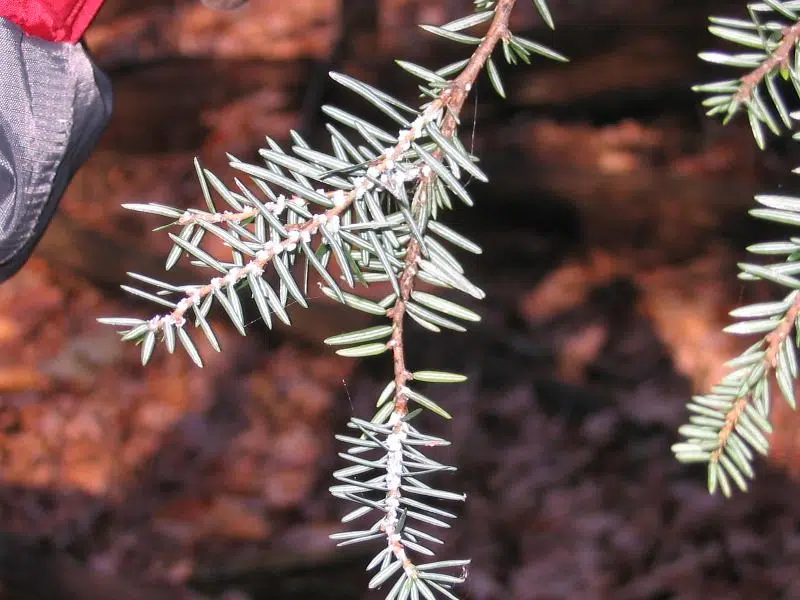Nova Scotia’s cherished hemlock trees at Kejimkujik National Park are facing an escalating danger from an invasive insect, prompting Parks Canada to adopt inventive strategies to safeguard this beloved species. The hemlock woolly adelgid, a destructive invasive insect, has been menacing these trees, jeopardizing their continued existence.
Matthew Smith, an ecologist at the park, revealed that park staff have recently received specialized training to apply insecticides designed to protect the hemlock trees. These insecticides can now be administered through a direct spray method on the tree bark, thereby immunizing the hemlocks against the hemlock woolly adelgid.
In the past, the sole available approach for insecticide application involved injecting it into the tree trunks, which was notably more time-consuming per tree when compared to the current spray method. Smith applauded this innovative development, emphasizing its potential to treat a larger number of trees, including those that are already severely infested. Furthermore, one of the newly introduced sprays exhibits a significantly faster response in curtailing the adelgid infestation.
Smith explained, “This method swiftly infiltrates the tree and effectively combats the adelgid. It proves particularly beneficial for hemlocks in advanced stages of decline, where immediate intervention is imperative.”
The hemlock woolly adelgid has been inflicting significant harm on hemlock trees in eastern North America for several years, with its initial detection in Nova Scotia dating back to 2017. These minute insects imperil hemlock trees by attaching themselves to the base of needles and sapping essential sugars, depriving the trees of vital nutrients. In their wake, they leave behind a white, wool-like substance, endowing them with their distinctive name.
The presence of this pest in Kejimkujik National Park was officially documented in 2018. Smith remarked, “Nearly every stand within the park is presently impacted, and signs of their deteriorating health are becoming increasingly evident. In certain areas, some trees have grown alarmingly slender, while a few have already succumbed to the infestation. Nevertheless, we were fortunate to detect this issue earlier than in other regions.”
The provincial Department of Natural Resources has also adopted the use of these spray pesticides to safeguard priority hemlock stands on Crown lands slated for conservation.
Smith underscored the concerted endeavors of the park, the province, and the Canadian Forest Service in hemlock conservation. Despite these collaborative efforts, Nova Scotians should brace themselves for the sobering reality that approximately 90% of hemlock trees are anticipated to perish over the next 10 to 15 years.





